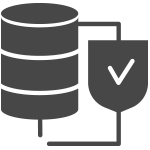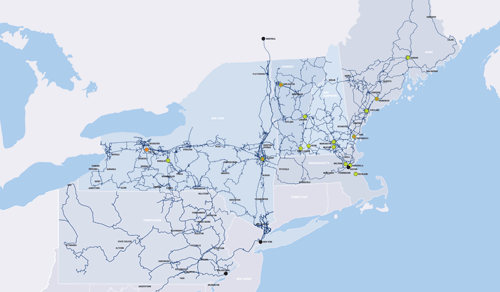
Hybrid cloud continues to be a popular choice for companies. 451 Research predicted that by 2019, 69% of companies will adopt multicloud or hybrid cloud.
The flexibility of hybrid cloud drives the market. Users enjoy the security of private cloud along with the accessibility and affordability of public cloud.
Companies that choose hybrid cloud can store data and run workloads on the cloud platform that meets their specific requirements. Management of the hybrid cloud is easier than with multicloud because companies can orchestrate between platforms.
Hybrid cloud has many use cases that add value for your business. The hybrid cloud model helps with business continuity and innovation, as well as workload and data management.
Here’s a closer look at 5 roles hybrid cloud can play in your business:
1) Data Protection
 Hybrid cloud provides both on-site and off-site data center resources, allowing companies to back up data in the public cloud. Because organizations can orchestrate between the two platforms, they can easily synchronize data to avoid losing information after an outage. Recovery can take place quickly, reducing costly downtime.
Hybrid cloud provides both on-site and off-site data center resources, allowing companies to back up data in the public cloud. Because organizations can orchestrate between the two platforms, they can easily synchronize data to avoid losing information after an outage. Recovery can take place quickly, reducing costly downtime.
Backup and recovery as a service (BRaaS) enables companies to scale rapidly to meet the backup needs created by data growth. Organizations are spared the capital expense of building a secondary data center for backup and recovery.
2) DevOps
Creating a development and testing environment for applications can be time-consuming and expensive. When a DevOps environment is built for temporary use, it must be disassembled once testing is completed or it will sit idle, wasting money.
With hybrid cloud, companies can scale up to create a DevOps environment and then scale down when work is completed. DevOps teams are free to design and test new applications when they need to, enabling them to speed new products to market.
3) Disaster Recovery
 No company can afford to skimp on its disaster recovery. Zerto, a disaster recovery as a service (DRaaS) provider, estimated that downtime from a catastrophic outage can cost a business millions of dollars in sales and employee productivity. Your capabilities for reducing downtime and data loss after a natural disaster or an equipment failure will ultimately determine whether your business sinks or swims.
No company can afford to skimp on its disaster recovery. Zerto, a disaster recovery as a service (DRaaS) provider, estimated that downtime from a catastrophic outage can cost a business millions of dollars in sales and employee productivity. Your capabilities for reducing downtime and data loss after a natural disaster or an equipment failure will ultimately determine whether your business sinks or swims.
Hybrid cloud offers an ideal mixed environment for disaster recovery. When a company loses on-site resources, instant failover to a public cloud environment enables it to achieve rapid recovery time objectives (RTOs) and recovery point objectives (RPOs).
4) Cloud Bursting
Keeping up with fluctuating workloads can be challenging. Some companies experience seasonal workload spikes, but others may experience unpredictable increases in workload traffic. Worse yet, a distributed denial of service (DDoS) attack may strike, flooding your network with requests and crippling your systems.
Hybrid cloud enables your company to temporarily increase the use of public cloud resources during a workload spike. These additional resources can be accessed on demand, preventing bottlenecks, latency, or stoppages. Cloud bursting ensures mission-critical applications keep running even when on-site resources are being taxed.
5) Data Tiering
 If companies don’t use data tiering, they waste money storing inactive data on more expensive, high-performance servers. Data tiering enables organizations to manage data so it gets sent to the appropriate type of storage.
If companies don’t use data tiering, they waste money storing inactive data on more expensive, high-performance servers. Data tiering enables organizations to manage data so it gets sent to the appropriate type of storage.
Hybrid cloud can automatically send inactive data to the public cloud to be archived. Production data can be sent to servers in the private cloud, where it can be more readily accessed and processed. If archived data is needed, it can easily be transferred back to the primary on-premises data center.
Taking Advantage of Hybrid Cloud
Adopting hybrid cloud opens many options for companies. Organizations can augment their data protection and management strategies or accelerate application development. For companies that already use hybrid cloud, new possibilities beyond infrastructure as a service (IaaS) are worth exploring.
FirstLight provides hybrid cloud services to a wide range of companies in the New England region. We support our hybrid cloud offering with our extensive high-speed fiber optic network. When you partner with us, you benefit from the cloud while maintaining control over your assets. Our DRaaS offering is powered by Zerto, a leader in disaster recovery software.
Get expert insight on what hybrid cloud can bring to your business. Reach out to FirstLight.





















